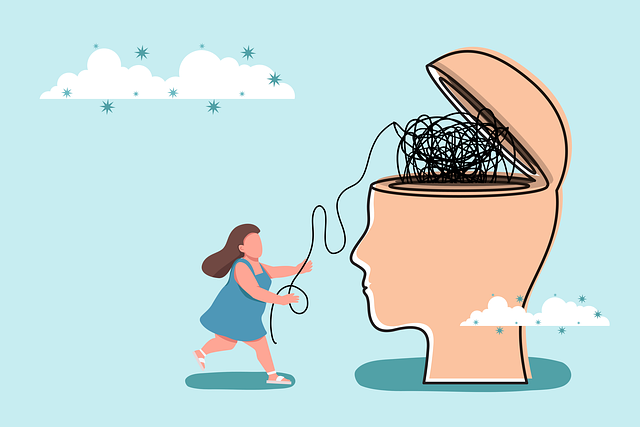Longmont Bilingual Therapy (LBT) offers a unique, culturally sensitive approach to resilience-building through their Recovery-Focused Management (RFM) model. By integrating tailored self-reflection, emotional regulation techniques, and problem-solving strategies in multiple languages, LBT empowers diverse communities to face challenges, manage trauma, and improve mental health outcomes. This holistic method includes risk assessments and focuses on enhancing coping skills, stress management, and positive thinking for both auditory and kinesthetic learners, ultimately fostering long-term behavioral changes and emotional well-being.
Resilience is a vital asset in today’s ever-changing world, and Longmont Bilingual Therapy offers an innovative approach to building it through RFM (Resilience, Flexibility, and Mastery) exercises. This article explores how RFM, a powerful framework, equips individuals with the tools to navigate challenges. We delve into Longmont Bilingual Therapy’s unique methods, providing diverse learners with tailored resilience-building experiences. Additionally, we discuss strategies for designing effective exercises and measuring the impact of these sessions, highlighting the transformative potential for personal growth, especially through innovative practices like those offered by Longmont Bilingual Therapy.
- Understanding RFM and Its Role in Resilience Building
- Longmont Bilingual Therapy: A Unique Approach to Exercise Implementation
- Designing Effective Resilience Exercises for Diverse Learners
- Measuring Success: Evaluating the Impact of RFM Exercises
Understanding RFM and Its Role in Resilience Building

Resilience is a vital asset for individuals to navigate life’s challenges and setbacks. Longmont Bilingual Therapy (LBT) recognizes this, which is why they implement RFM (Recovery-Focused Management), a powerful approach to building resilience. RFM focuses on fostering hope, strengthening coping skills development, and promoting positive outcomes for those facing various adversities. By integrating this method, LBT aims to empower clients with the tools needed to endure and thrive in stressful situations.
This strategy plays a significant role in enhancing individuals’ ability to cope with trauma, mental health issues, or personal crises. Through RFM exercises, clients engage in activities that encourage self-reflection, emotional regulation, and effective problem-solving strategies. These exercises are tailored to meet the unique needs of each individual, ensuring that they gain practical coping skills development while considering their cultural backgrounds. This is particularly essential for healthcare provider cultural competency training, as it enables professionals to offer more inclusive support, addressing potential barriers to resilience-building. Additionally, conflict resolution techniques are often incorporated, teaching individuals how to navigate and manage interpersonal challenges constructively.
Longmont Bilingual Therapy: A Unique Approach to Exercise Implementation

Longmont Bilingual Therapy offers a unique approach to resilience-building exercises, leveraging the power of language and cultural understanding. By conducting sessions in multiple languages, this therapy method caters to diverse communities, ensuring that exercise implementation is inclusive and accessible. The approach not only helps individuals improve their self-esteem but also fosters positive thinking, especially in those facing anxiety relief challenges. Through interactive activities, participants engage with both the physical and mental aspects of resilience, creating a holistic environment that encourages personal growth.
This innovative therapy recognizes the importance of cultural context in exercise implementation. By offering sessions in various languages, Longmont Bilingual Therapy ensures that every participant can fully express themselves and connect with the exercises on a deeper level. This personalized approach not only enhances the effectiveness of resilience-building activities but also contributes to improved mental health outcomes, particularly for those struggling with anxiety or low self-esteem.
Designing Effective Resilience Exercises for Diverse Learners

At Longmont Bilingual Therapy, we understand that designing effective resilience exercises for diverse learners requires a tailored approach. Recognizing individual differences in learning styles and cultural backgrounds is essential to create engaging and impactful activities. For instance, incorporating visual aids, storytelling, and hands-on activities can cater to both auditory and kinesthetic learners, ensuring no one gets left behind.
Moreover, integrating communication strategies and self-awareness exercises into the curriculum enhances participants’ ability to express emotions and cope with challenges. By teaching stress management techniques alongside these exercises, we empower individuals to build resilience, fostering a sense of agency and adaptability in their lives.
Measuring Success: Evaluating the Impact of RFM Exercises

Measuring success is a vital component when implementing RFM (Resilience, Flexibility, and Mindfulness) exercises, especially in sensitive areas like mental health therapy. At Longmont Bilingual Therapy, we understand that evaluating the impact of these sessions is crucial for both therapists and clients. By conducting regular risk assessments, we can gauge clients’ progress and ensure they are equipped to handle potential challenges effectively. This process involves a comprehensive review of their resilience levels, emotional regulation skills, and overall mental fortitude before, during, and after the RFM exercises.
The impact of these sessions extends beyond the therapy room. Through Crisis Intervention Guidance and by fostering Mind Over Matter principles, clients develop coping strategies that can be applied in various aspects of their lives. We measure success not just in terms of immediate improvements but also in long-term behavioral changes and enhanced emotional well-being. This holistic approach ensures that our RFM exercises are not just short-term interventions but powerful tools for building resilience and navigating life’s challenges, as evidenced by the progress of our clients at Longmont Bilingual Therapy.
The implementation of RFM (Resilience, Flexibility, and Mastery) exercises, as demonstrated by Longmont Bilingual Therapy’s innovative approach, offers a powerful method for building resilience in learners. By tailoring activities to diverse needs, we can create an inclusive environment that enhances emotional well-being and fosters personal growth. Measuring the impact of these exercises is crucial, allowing us to refine and optimize programs like Longmont Bilingual Therapy, ensuring their effectiveness in preparing individuals for life’s challenges.














